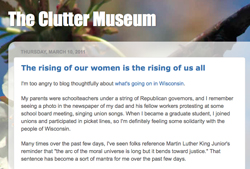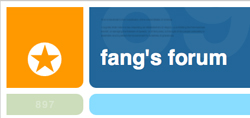David Brooks writes that the humanities went to hell in a handbasket half a century ago. He explains what humanities instruction used to be and what it should become once again.
The job of the humanities was to cultivate the human core, the part of a person we might call the spirit, the soul, or, in D.H. Lawrence’s phrase, “the dark vast forest.”
This was the most inward and elemental part of a person. When you go to a funeral and hear a eulogy, this is usually the part they are talking about. Eulogies aren’t résumés. They describe the person’s care, wisdom, truthfulness and courage. They describe the million little moral judgments that emanate from that inner region.
The humanist’s job was to cultivate this ground — imposing intellectual order upon it, educating the emotions with art in order to refine it, offering inspiring exemplars to get it properly oriented.
Somewhere along the way, many people in the humanities lost faith in this uplifting mission. The humanities turned from an inward to an outward focus. They were less about the old notions of truth, beauty and goodness and more about political and social categories like race, class and gender.
Specifically, he mentions we should study Pericles, Socrates, and Galatians.
Hmmmm. . .I wonder why the emphasis on such figures faded, to be replaced by cultural studies?
Let’s see. . .50 years ago was when? Ah, yes–1963–when the Civil Rights movement was exploding into the national consciousness. Funny that it was at that moment humanists in the academy felt it necessary to shift gears to consider race, class, and gender–to try to help their students make sense of the giant demographic, cultural, and economic shifts of the second half of the 20th century. David Brooks would like us to go back to navel-gazing and the ancient world instead of studying how people make sense of and engage with a rapidly changing modern world. (Yes, I get that we can learn lessons from those who came before us–I work as an historian, after all–but I’m wondering if there isn’t a statute of limitations on learning from others’ experiences. The men of the ancient world always felt remote and inaccessible to me, despite my excellent teachers.)
As someone who earned four degrees in humanities fields between 1993 and 2006, let me assure Mr. Brooks that I was indeed required to read the ancient classics, and students still read such works in the history department where I teach. However, in reflecting on my own soul and my place in the world, I found Thucydides and Plato less compelling than Elizabeth Bishop, Emily Dickinson, Walt Whitman, Adrienne Rich, Audre Lorde, Virginia Woolf, Leslie Marmon Silko, Louise Erdrich, Langston Hughes, Cornel West, and countless other authors of the 19th and 20th centuries who shared their experiences of being pushed to the margins because they were women, queer, people of color, living with disabilities, or in some other way out of the mainstream.
What was your experience in your humanities courses, in high school or college or beyond?


Studying race, class, and gender has fed my soul (or my sense of happiness) and given me an understanding of truth(s), beauties, and goodness! That’s what the humanities do! And not just for dead white guys (though I like mine pretty dead, personally, because… Shakespeare!), but the rest of us are actually human, too! That’s the power of the humanities! They make us face our humaneness, see our potential, our beauties, but also our mortality, vices, and pettiness.
He doesn’t seem to understand that studying race, class, and gender help us understand real truths, and to think more ethically about how to be human.
On the other hand, he often doesn’t seem to understand much at all. Maybe he should study some race, class, and gender!!!!!
I must admit some disenchantment with the humanities, not like Brooks of course. I, in fact, found the humanities programs I was involved in, save my Ph.D. institution, to be too backward looking. Technology was anathema to them. It was going to destroy the world as we know it and not open up new ways of looking at things. And then, once they did embrace technology, they failed to fully understand it, and spoke of it mostly metaphorically and inaccurately.
On the flip side, I find computer people to discount the humanities too much, or they fail to understand fully that it’s humans who use the machines and therefore, there needs to be design to take that into account. And they need to understand that programs have biases that programmers bring to their programs. Too often, people think of code as “objective”. It’s not. But it’s also no analyzable in the same way Huck Finn is (I’ve seen these articles; they scare me).